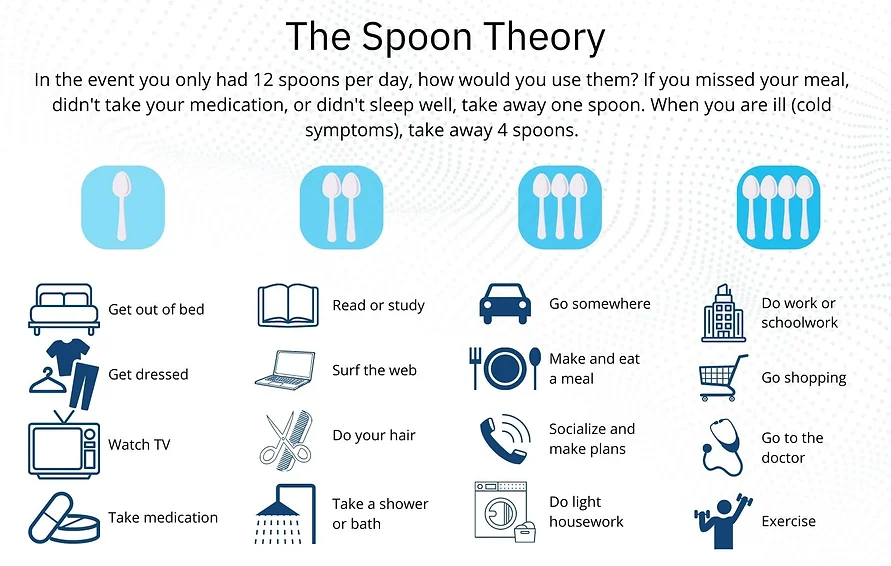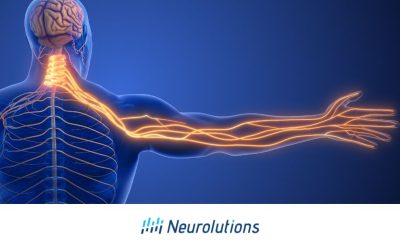Following a stroke, individuals may experience post-stroke fatigue. Post-stroke fatigue is defined as an overwhelming sense of tiredness, lack of energy, and/or difficulties sustaining routine actions in which rest is unrefreshing (1).
This sense of exhaustion may cause a decrease in motivation, emotional disturbances, symptoms of depression and/or anxiety, as well as impairments in physical, social, and cognitive functioning. Fatigue can be triggered by stress, medication, overwork, and mental and/or physical illness. Post-stroke fatigue can happen after any type of stroke, even after a transient ischaemic attack (mini-stroke) (2).
It is important to understand the signs and symptoms of post-stroke fatigue to help reduce and manage your fatigue. Knowing how to manage your post-stroke fatigue can increase your quality of life.his article will explain post-stroke fatigue in-depth, such as its causes, symptoms, and how to live with post-stroke fatigue.
What is Post-Stroke Fatigue?
Individuals who had a stroke may experience an increase in exhaustion, which is called post-stroke fatigue. Post-stroke fatigue is defined as an overwhelming sense of tiredness, lack of energy, and/or difficulties sustaining routine actions in which rest is unrefreshing (1). After having a stroke, the body uses energy differently. For example, it may take longer to perform activities of daily living, such as getting dressed, going to the bathroom, or cooking. Performing these activities may take longer than pre-stroke life.
What Causes Post-Stroke Fatigue?
Multiple factors can cause post-stroke fatigue after an individual has a stroke. The exact cause of post-stroke fatigue varies from person to person (3). Everyone’s level of fatigue will be different. Post-stroke fatigue can improve with time, but there’s no way to predict how much it will improve or how long it will take. Fatigue doesn’t always happen because an individual is working harder or is more active. It depends on biological, psychological, and lifestyle factors.
Early fatigue after stroke may be associated with damage to brain structures and neuroendocrine systems responsible for maintaining attention and wakefulness (4). Neuroplasticity is our brain’s ability to change. When someone has a stroke, the uninjured parts of the brain can take over tasks that the injured parts used to do. The parts of your brain taking on new functions are not as efficient as they should be, which means you need to concentrate harder and longer. This causes you to be more tired and use more energy (5). Someone who has other conditions, such as respiratory concerns, heart disease, obesity, or a physical disability may experience an increase in post-stroke fatigue.
Depression and anxiety are very common after experiencing a stroke. Having a stroke is a life-changing event. It changes the way you think, move, and feel. It makes you worry more about the future, and changes to responsibilities, relationships, work, and finances can cause more stress and anxiety. The changes in the brain from the stroke may cause personality, mood, and emotional changes, which can cause post-stroke fatigue (5). Some medications can cause more fatigue, especially psychiatric medications. Other medications that can cause fatigue are beta blockers for high blood pressure, epilepsy drugs, and antidepressants. It is important to know the side effects of your medications.
Certain lifestyles can cause more fatigue than others. Being sedentary all the time can cause you to be more fatigued. Someone who has a poor diet and sleep schedule can have more post-stroke fatigue than someone who maintains a nutritional and balanced diet, as well as 7-8 hours of sleep (4). Also, if you have trouble with swallowing or chewing, it could affect the amount of energy and nutrients you gain from your food. When you have trouble swallowing and/or chewing, your body requires more energy to consume your food. This causes more fatigue in your body. In addition, sleeping problems such as insomnia and sleep apnoea, such as interrupted breathing while sleeping, can make you feel tired and restless during the day.
Symptoms & Signs of Post-Stroke Fatigue:
- Exhaustion (mentally and physically)
- Difficulty with memory, self-control, and emotions
- Lack of attention span
- Lack of energy
- Sleep more
- Unmotivated to perform activities you used to enjoy
- More easily tired by daily activities than pre-stroke
- Unpredictable feelings of fatigue without apparent reason
Is Post-Stroke Fatigue Common?
Post-stroke fatigue is very common, can sometimes last for a long time, and can happen to any stroke survivor. It is important to remember that you are not alone.
Important Statistics about Post-Stroke Fatigue:
- Approximately, 39-72% of stroke survivors can experience post-stroke fatigue
- Acute fatigue can last up to 6 months
- Chronic fatigue can persist in 40% of patients after 2 years of the stroke onset
- Fatigue may still be present in one-third of patients up to 6 years after stroke onset
- One in three people experience depression during the 5 years after their stroke due to post-stroke fatigue
How Long Does Post-Stroke Fatigue Last?
Post-stroke fatigue may last from 2 years to 6 years, depending on the person. It can range from relatively mild to severe, and the intensity of the tiredness does not appear to be related to the severity or type of stroke you experienced (2). Individuals who experienced a stroke caused by bleeding in the brain, hemorrhagic stroke, and those who experienced a stroke caused by a blockage in a blood vessel, ischemic stroke, may experience the same amount of fatigue. However, an individual who sustained a transient ischemic attack (TIA), or mini-stroke, may experience less post-stroke fatigue (2).
What Can You Do to Manage Post-stroke Fatigue?
There are different strategies for managing post-stroke fatigue. First, you need to find out the cause of your fatigue. If the cause of your fatigue is performing too many activities, then you need to prioritize the most important activities. Making a schedule is the best technique to use to manage your fatigue!
The Three P’s!
- Pace: think about how you can take things step-by-step at a manageable speed without triggering your fatigue
- Plan: map out what you want to do, and then plan when and how you can do it
- Prioritize: decide which activities are important to you and which ones you can get help with or have someone else do it
Spoon Theory
What is the Spoon Theory? The Spoon Theory uses spoons as a visual representation of how much energy someone has throughout their day. The average healthy person would have an unlimited amount of spoons per day, while a person with chronic fatigue would start each day with a limited number of spoons. Every activity during the day will cost a person a certain amount of spoons, the greater the effort the more spoons required. Once all the spoons are used up for that day, all their energy is used up. The only way to replenish their spoons is to rest. If someone pushes past their number of spoons, they will feel fatigued. This will often take days to return to “normal” (6).
(7)
Getting Help for Post-Stroke Fatigue
Medical professionals can help you manage your post-stroke fatigue. For instance, an occupational therapist can give you the tools needed to simplify daily activities. For example, providing a chair or a raised garden when you want to plant flowers, dressing tools to help reduce the time and effort to get dressed, a timer to remind you to take breaks while cleaning or cooking, and lastly, help you provide a visual schedule on which activities are most important to you.
A physical therapist can help you with different exercises to build strength and help develop a workout plan that is suitable for you. A psychologist or counselor can help you cope with your post-stroke fatigue. They can give you different techniques, such as mindfulness, self-care tactics, and being able to advocate for yourself (3). Dieticians can find specific foods that you can eat if you are experiencing difficulty with swallowing or chewing, to get the nutrients you need.
Tips for Managing Post-Stroke Fatigue
- Post-stroke fatigue is very common after sustaining a stroke, it is not your fault!
- Give yourself plenty of time. The more you push yourself, the worse you are likely to feel.
- Keep a written or visual diary of how much you are doing.
- If you’re having a ‘better day,’ don’t push yourself. It may leave you exhausted for the next day or two.
- Celebrate your success! Many people feel frustrated by what they can’t do, but forget about what they can do.
- Don’t make it hard for yourself by trying to do all the things you used to do or at the same speed.
- Try to eat at least five portions of fruit and vegetables each day.
- Carbohydrates and protein are good sources of energy.
- Start to wind down during the evening and get into a bedtime routine.
- Try to maintain some level of exercise, as regular exercise may help to improve fatigue. Start slow!
- It’s okay to seek support!
Moreover, it is not your fault that you experience post-stroke fatigue! It is okay to seek support from friends, family, and care partners. If you feel frustrated or embarrassed because of your post-stroke fatigue, then take a step back. Breathe. Remember what you can do, instead of what you cannot do.
In conclusion, post-stroke fatigue happens to every person who experiences a stroke. The stroke can be mild to severe, but that doesn’t mean you cannot accomplish your goals and live a healthy life. It is important to know the symptoms and causes of your post-fatigue. Every stroke is different and affects individuals in different ways. Some people may need more help than others. This means everyone has different ways to manage their post-stroke fatigue. Ask for help. Prioritize your daily activities and enjoy the best life you can.
References:
https://www.ncbi.nlm.nih.gov/pmc/articles/PMC8336834/ (1)
https://www.stroke.org.uk/effects-of-stroke/tiredness-and-fatigue (2)
https://www.flintrehab.com/fatigue-after-stroke/ (3)
https://www.ahajournals.org/doi/full/10.1161/STROKEAHA.114.006647 (4)
https://strokefoundation.org.au/what-we-do/for-survivors-and-carers/after-stroke-factsheets/fatigue-after-stroke-fact-sheet (5)
https://www.bjchealth.com.au/blog-fitness/the-spoon-theory-managing-fatigue-with-chronic-illness (6)
https://me-pedia.org/wiki/Spoon_theory (7)
https://jpro.springeropen.com/articles/10.1186/s41687-021-00307-z (8)






